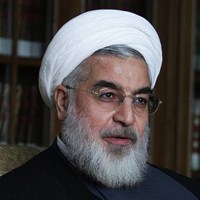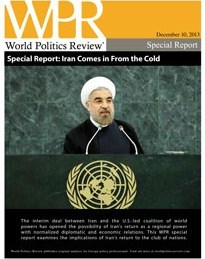
United Nations peacekeepers have repeatedly been in the headlines through 2013, grappling with crises across Africa. But the year’s single greatest challenge to the U.N.’s strategic credibility—the Syrian military’s large-scale use of chemical weapons in Ghouta in August—took place with no peacekeepers in sight. The best the organization could do in the immediate aftermath of the atrocity was to dispatch chemical weapons inspectors to the scene, while U.N. Secretary-General Ban Ki-moon pleaded for time for them to investigate. Yet at the beginning of this year, it appeared quite possible that international peacekeepers would deploy to Syria in the course of […]



